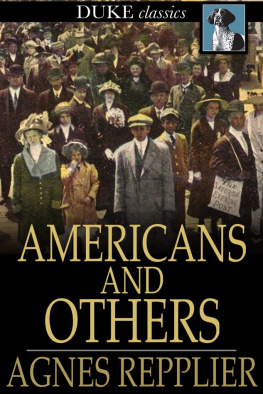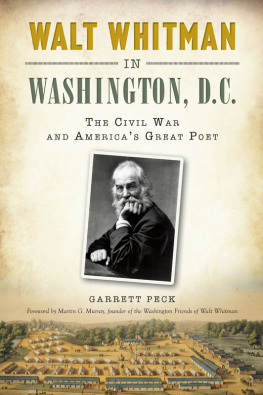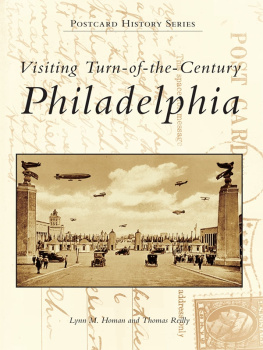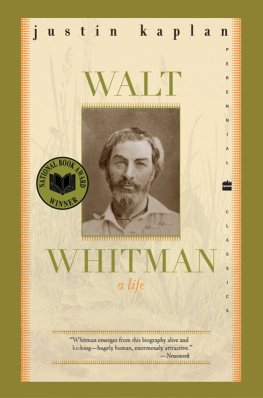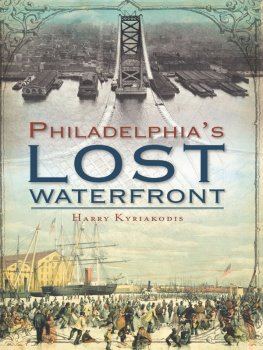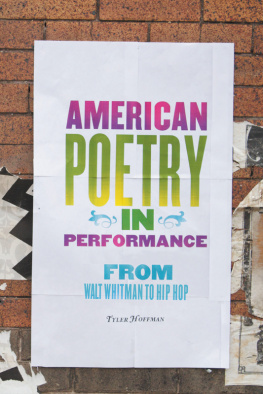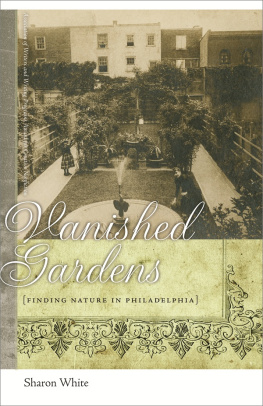For William J.D. Jordan
INTRODUCTION
When balloonist Jean-Paul Blanchard flew over northern Philadelphia and the Delaware River into New Jersey during his historic 1793 flight, the crowd of dignitaries at the liftoff included President George Washington, John Adams and Thomas Jefferson. Tickets for the best seats were five dollars. The spectacle, known as Americas first flight, attracted the attention of New Yorkers, who hoped that wayward winds would blow Blanchard over their city.
If we were to review Philadelphias literary terrain in the same way that Blanchard flew over the city, wed see a patchwork of styles and visions.
Flying over the citys smoky colonial landscape, wed notice Benjamin Franklin and Thomas Paine and observe both men dutifully printing their pamphlets and creating new works. Wed encounter Charles Brockden Brown, the Quaker writer who published novels and short stories before James Fenimore Cooper came on the scene. In a surprise jolt upward, our balloon might lead us to Dr. Benjamin Rush and then swing low over the head of another pamphleteer, Matthew Carey, who wrote on social topics such as the foolishness of dueling. Our final eighteenth-century stop would be a visit to the home of poet Philip Freneau, a militiaman during the War for Independence who became known as the unrivaled poet of the Revolution and regarded by many as the Father of American Literature.
Philadelphias literary terrain after the eighteenth century brings us to dark hues inherent in the work of Edgar Allan Poe. Poe was appreciated mainly by the French during his lifetime but generally ignored by his own countrymen while publishing works like The Raven. Then there was Poes friend George Lippard, author of The Killers: A Narrative of Real Life in Philadelphia, as well as many other works. It was Lippard who wrote of the inhumane conditions at the citys Eastern Penitentiary, comparing it to a feudal castle of the dark ages and numbering the outrages committed there as worse than the atrocities committed in Frances Bastille. In The Killers, Lippard wrote:
The difference between Hanging as a punishment, and Solitary Confinement may be summed up in a few words: To hang a man when you can punish his crime, and prevent his again violating the lawis at best a cruel and cowardly punishment. Hanging is a quick, horrible and unnecessary death. Hanging, however, bad as it is, and as much opposed as it is to the Law of Christ and Humanity, is only a murder of the Body. Solitary Confinement is a murder of Body and Soul. It is one of those punishments which man has no right to inflict upon man.
Lippard shares his Germantown birthplace with Louisa May Alcott, author of Little Women, who would leave Philadelphia as a child and move to Boston and then to Concord, Massachusetts, with her family. Alcott wouldnt see Philadelphia again until she traveled through the city on a train while on her way to Washington, D.C., to nurse wounded Civil War soldiers.
A sketch of Chestnut Street. Courtesy of the Free Library of Philadelphia.
Far from Germantown, the Chester Countyborn Bayard Taylor, author of Joseph and His Friend, once wrote a fan letter to Charles Dickens asking for his autograph (he got it). As a young man, he traveled through Europe with a friend on six cents a day. He knew Walt Whitman, who would become Americas most famous bard, although the two men were occasional literary competitors. Whitmans humble home across the Delaware River in Camden could not compare to Cedarcroft, Taylors grand Kennett Square estate, although Taylor could not boast, unlike Whitman, that Oscar Wilde had paid him a visit. During that Camden meeting, the two men shared a bottle of Whitmans homebrew of elderberry wine, with Wilde later commenting, If it had been vinegar, I should have drunk it all the same. When Whitman was not at home on Mickle Street, he spent considerable time in Philadelphia admiring the new city hall, then under construction, or attending an opera at the Academy of Music. Sometimes he would alight from the Delaware River ferry just to loiter near Second and Market Street and mix with the crowds of workers and ragamuffins.
In a piece entitled Exposition BuildingNew City HallRiver Trip, Whitman wrote of his impressions of the then under construction city hall at Fifteenth and Market Streets:
Returning home, riding down Market street in an open summer car, something detaind us between Fifteenth and Broad, and I got out to view better the new, three-fifths-built marble edifice, the City Hall, of magnificent proportionsa majestic and lovely show there in the moonlightflooded all over, facades, myriad silver-white lines and carvd heads and mouldings, with the soft dazzlesilent, weird, beautifulwell, I know that never when finishd will that magnificent pile impress one as it impressd me those fifteen minutes.
In Walt Whitman: The Song of Himself, Jerome Loving writes that Philadelphias Market Street was where the bearded poet (his beard was now totally white) was familiar to trolley conductors, shopkeepers, and even bartenders. Whitman, Loving continues, never tired of being out on the Delaware River, and once in the winter, he claimed, he even hobbled with his cane halfway across ituntil the ice looked unreliable. The poet also relished riding the Delaware River ferry and wrote about the experience in Forneys newspaper, noting how much the ferrymen and skippers meant to him, as well as the ferry itself, with its queer scenessometimes children suddenly born in the waiting-housessometimes a masquerade party, going over at night, with a band of music, dancing and whirling like mad on the board deck, in their fantastic dresses.
In the early twentieth century, there was Agnes Repplier, called a shy Catholic version of Ralph Waldo Emerson and the American Jane Austin. Repplier hobnobbed with Edith Wharton in Boston, introduced Henry James to Philadelphia audiences and conferred with S. Weir Mitchellphysician, writer and author of A Diplomatic Adventurewho, like Whitman, spent time helping to nurse wounded Civil War soldiers.
On a contemporary note, novelist Richard Powells


